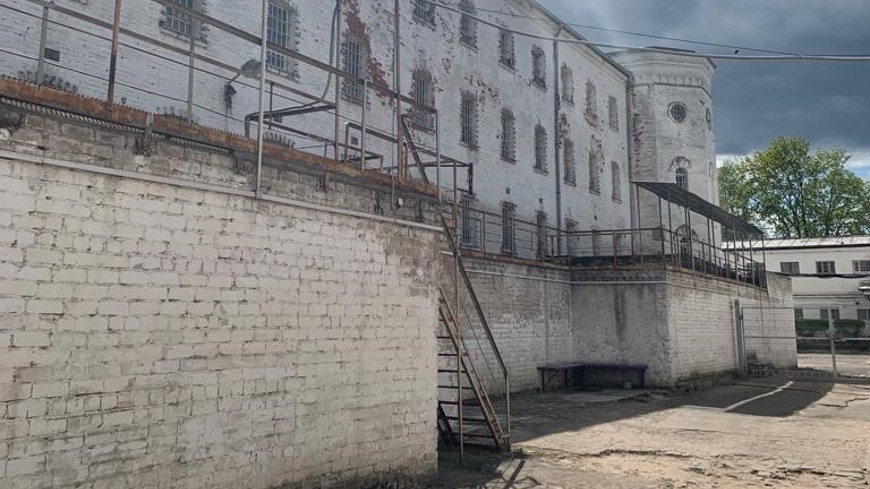As regards police custody, the majority of persons interviewed by the CPT delegation stated that they had been treated correctly by the police. However, the delegation did receive several allegations from detained persons, of physical ill-treatment by police officers. Most of these allegations referred to an excessive use of force in the context of apprehension after the persons concerned had been handcuffed or otherwise brought under control and the ill-treatment alleged consisted primarily of slaps, punches and kicks. The report describes, by way of illustration, some cases of alleged ill-treatment.
With only a few exceptions, material conditions of detention in the police establishments visited were generally good. It is also positive that, in line with a previous CPT recommendation, detained persons were offered one hour of outdoor exercise every day.
The delegation visited Latvia’s two dedicated detention facilities for foreign nationals, namely Daugavpils and Mucenieki Immigration Detention Centres. Most of the foreign nationals interviewed at these centres stated that they were treated correctly and, except for some accounts of verbal abuse at Daugavpils, the delegation did not receive any allegations of ill-treatment by the staff of the two establishments.
At both detention centres, material conditions of detention were generally of a good standard, and foreign nationals benefited from an open-door regime. However, the Latvian authorities should ensure that detained foreign nationals are also offered some purposeful activities. The CPT further stresses that every effort should be made to avoid resorting to the detention of migrant children. As regards unaccompanied minors more specifically, given their particular vulnerability, they should not, as a rule, be held in an immigration detention facility.
In August 2021, Latvia started to experience a large influx of foreign nationals irregularly entering its territory through its border with Belarus. In response, the Latvian Government declared a state of emergency in the four administrative territories on the border, in particular authorising the border guards (assisted by the police and the army) to use force, if necessary, in order to prevent foreign nationals from crossing the border in an irregular manner.
The delegation received a number of allegations of severe ill-treatment from detained foreign nationals relating to the period between August 2021 and March 2022, in the context of the above-mentioned influx of migrants. The alleged ill-treatment concerned members of Latvian special police forces patrolling the border area and was said to have been inflicted with the aim of forcing the persons concerned to return to Belarus. The allegations mainly consisted of punches, kicks, truncheon blows, and electric shocks inflicted on various parts of the body (including the genitals) at the time of or immediately following apprehension, after the foreign national concerned had been brought under control. The CPT recommends that all law enforcement agencies concerned receive a firm message on a regular basis that any use of excessive force is illegal and will be punished accordingly. They should also be provided with further practical training relating to the proportionate use of force, including control and restraint techniques, in the context of apprehending foreign nationals at the border.
In the prisons visited, the majority of prisoners interviewed indicated that staff treated them correctly. However, the delegation did receive a few allegations of recent physical ill-treatment by staff at Daugavgrīva and Rīga Central Prisons.
Further, the delegation once again heard many credible allegations of inter-prisoner violence, including beatings, as well as psychological pressure. The information gathered during the visit suggested that inter-prisoner violence remained a serious problem at Jelgava and Daugavgrīva Prisons. The informal prisoner hierarchy (or “caste system”) still seemed to be a key foundation of prisoners’ life in these establishments. Clearly, those worst affected by this state of affairs were the “lowest caste” prisoners, from whom most of the accounts of inter-prisoner violence were received. The CPT calls upon the Latvian authorities to take resolute action, without further delay, to address these systemic and persistent problems throughout the prison system.
Material conditions of detention were on the whole good in the renovated blocks of Rīga Central Prison. However, the Grīva Section of Daugavgrīva Prison failed to provide decent accommodation for prisoners, due to its outdated design and the level of dilapidation of the facilities.
The visit also revealed that the provision of healthcare in the prisons visited remained insufficient and the problem of lack of medical personnel was persistent.
As regards psychiatric establishments, the vast majority of patients interviewed by the delegation at Daugavpils and Akniste Neuropsychiatric Hospitals made no allegations of ill-treatment by staff. Further, patients’ living conditions in both hospitals were generally good. Nevertheless, the report recommends that all patients’ rooms and common areas be decorated with a view to providing a more suitable therapeutic environment.
The CPT acknowledges the efforts made by the management of the two hospitals to provide psycho-social therapies and occupational activities to patients. However, more efforts should be made to increase the number of patients taking part in these activities, in particular at Akniste Neuropsychiatric Hospital, where the proportion of such patients was very low.
Finally, the CPT formulates a number of specific recommendations and comments regarding the legal safeguards surrounding the involuntary placement of patients in a psychiatric hospital and the fact that many patients were de facto deprived of their liberty, without benefiting from the appropriate safeguards.
In their response, the Latvian authorities provide information on various measures, taken or envisaged, to implement the recommendations made by the Committee in the visit report.




